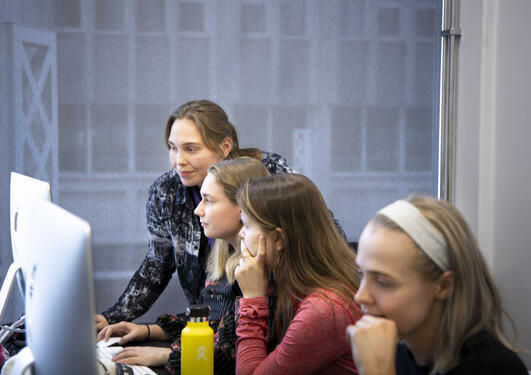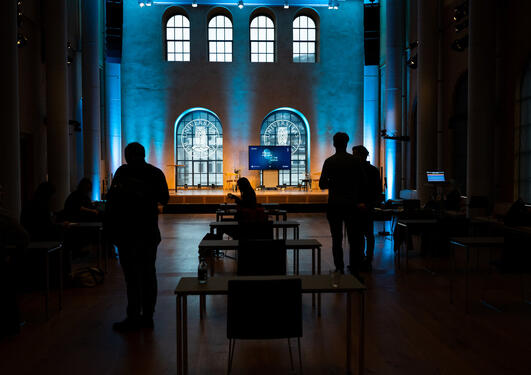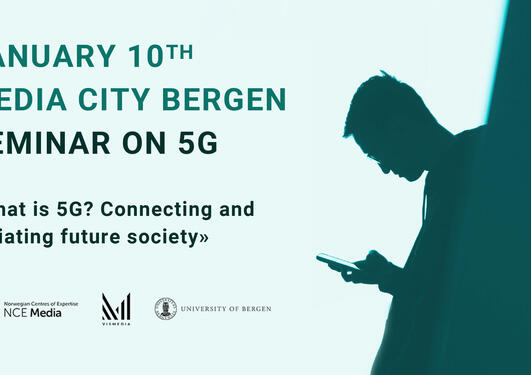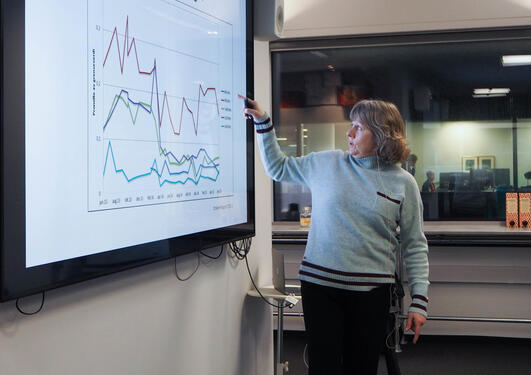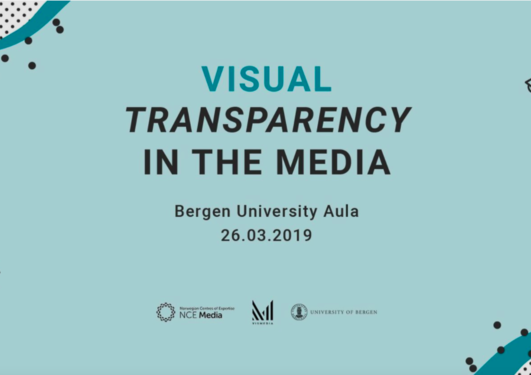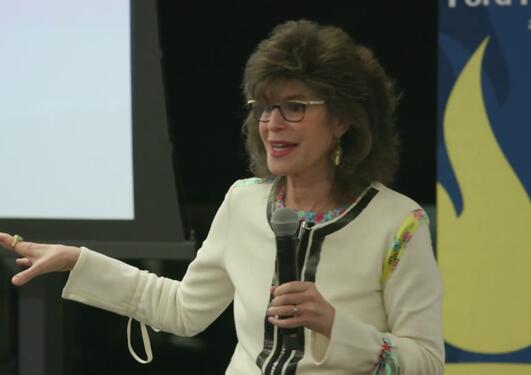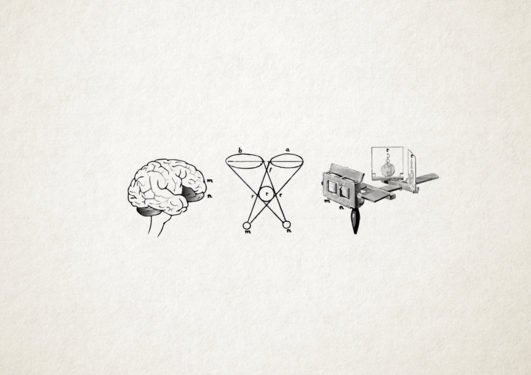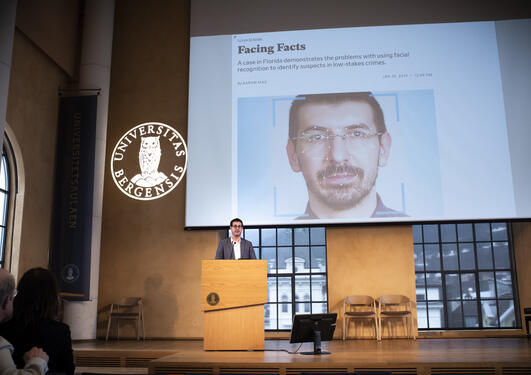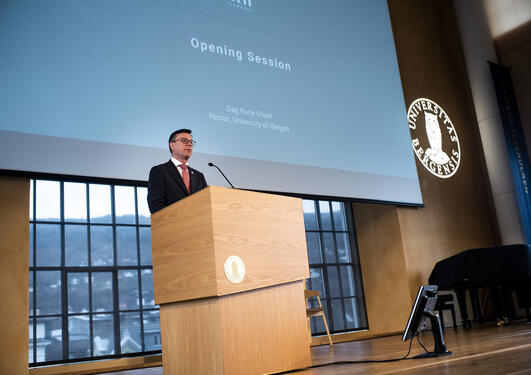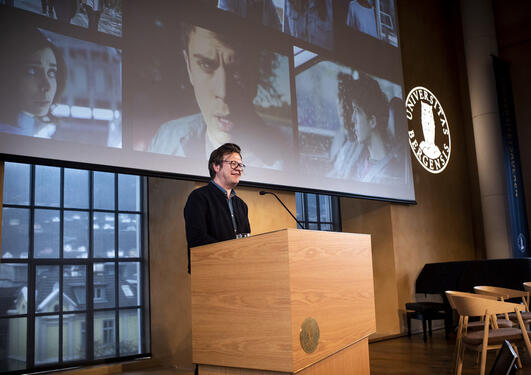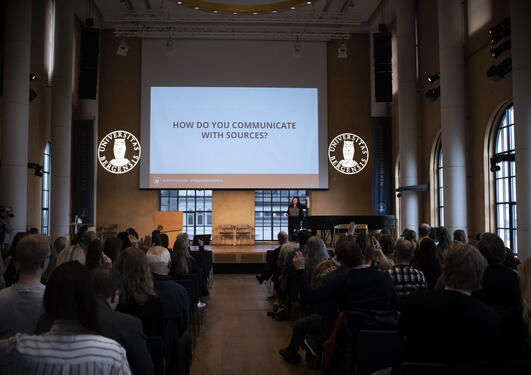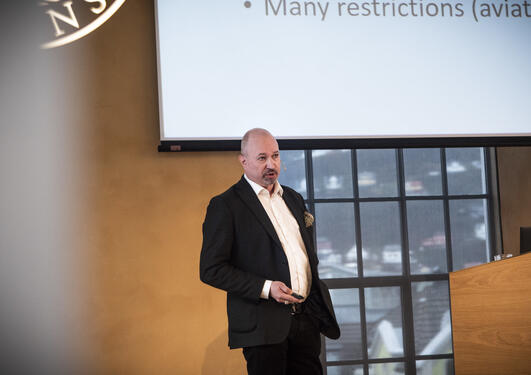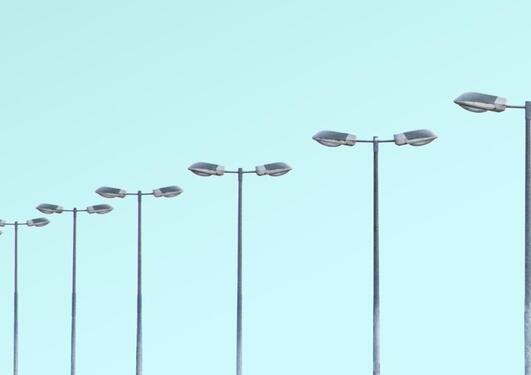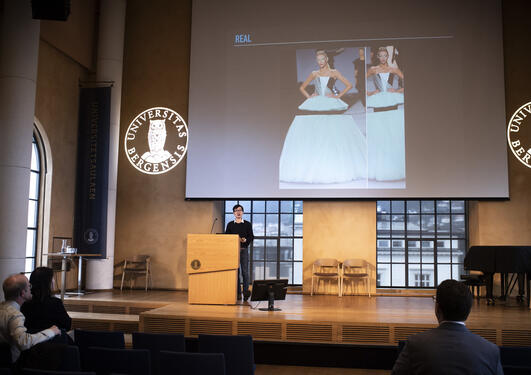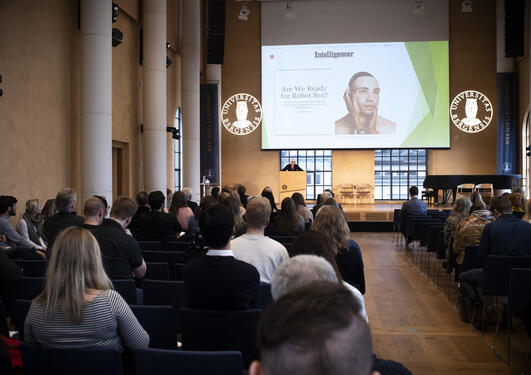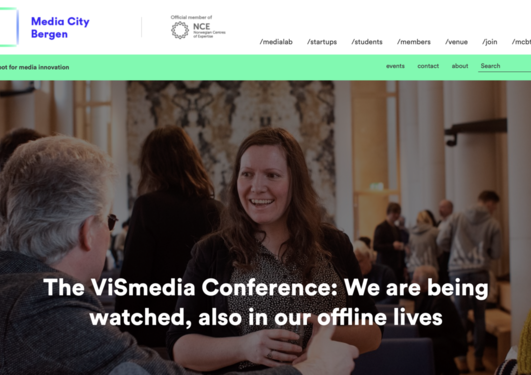Nyhetsarkiv for ViSmedia
Imagine a video of Donald Trump appearing in your social media feed. Would you ask yourself if the video is real? Well, why shouldn’t it be? This is the reality of deepfakes. How can fake imitations be a threat to the integrity of democratic elections?
In February 2020, ten bachelor students in TV production at Media City Bergen worked intensively on a new project. They were challenged to develop three video scenarios and SoMe content for the fifth and last ViSmedia conference, which was going to be held in the Bergen University Aula in March.
How could satellite imagery change journalism? What can technical experts do with deepfakes? And how should we best prepare the students to deal with the technologies we don't know yet? These were some of the questions the last and final ViSmedia conference, Visual futures of the media, aimed to answer.
In a time of fake news, how can we help journalists to verify visual user-generated content? As a graduate student in HCI/Information Science, Anette Drønen Sunde developed a prototype called VIBI.
«If the radiation from cell phones is as bad as the sceptics says, we would have seen a dramatic increscent of brain cancer all over the world,» Tone-Mette Sjømoen, director of the Norwegian Radiation and Nuclear Safety Authority, said. Sjømoen was invited to give a talk on 5G and radiaton at ViSmedias 5G seminar in Media City Bergen the 10. of January.
What is the future of visuals in the media? How can we learn to distinguish fakes from facts, and how can we build our own digital self-defence? These are some of the issues that will be discussed at this year´s ViSmedia conference in Bergen, March 26 2019.
How does the secret architecture of surveillance capitalism play out? And what is the role of the tech giants in a society where computing increasingly invade privacy and even the bodies of humans?
At this stage computing will permeate all corners of life and increasingly invade the bodies of humans and animals as well. Timely to this new invasive digital stage Shoshana Zuboff, a professor... Les mer
Can philosophy help us understand and relate to Virtual Reality?Who knows? But that’s the sort of questions that intrigue Joakim Vindenes, a research fellow at the Center for the Science of Learning and Technology (SLATE) at the University of Bergen.
Every move you make every breath you take; the lights are watching you. In Germany, street lights are being equipped with sensors that read and interpret reality. So-called smart-streets can monitor all your movements in public spaces. Documentary maker Nora Bauer.
Trust in media is declining, particularly for online news and social media. And how can you tell which images are real, and which images are photoshopped? Duc Tien Dang Nguyen visited the ViSmedia Conference to demonstrate which methods researchers uses to detect visual disinformation.
Through smart street lights and AI, creating the chilling feeling of never being able to do anything without being watched. But new surveillance technology and satellites can also be our eyes in dangerous areas, like the recent volcano eruption in Hawaii and restricted areas in North Korea.
Sider
- september 2021 (12)
- august 2021 (87)
- juli 2021 (33)
- juni 2021 (2)

